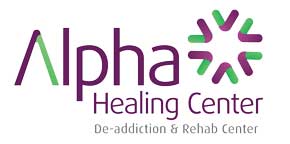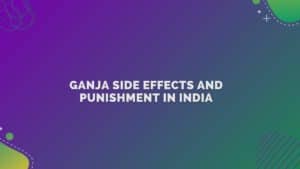Addiction is a widespread problem with devastating consequences on countless lives. While the allure of addictive substances and behaviours can be overwhelming, the price paid is even more outrageous. This blog delves into the gripping reality of addiction, analysing its financial, emotional, and physical consequences. The comprehensive blog aims to raise awareness about the grave costs of addiction to inspire positive changes in individuals and society.
The Financial Costs of Addiction
Addiction can rapidly impact financial resources, leaving individuals and families grappling with overwhelming debt. The financial costs can be direct, indirect, or social, as explained in the following sections.
Direct Financial Costs
The direct costs of addiction include money spent on purchasing the underlying drugs. For instance, in India, a household spends an average of 5% of its monthly income on alcohol alone. This figure can increase or decrease for other drugs, such as tobacco and cocaine.
Apart from the cost of purchasing drugs abused, other direct costs include the costs of treatment as well as legal fees. Addiction treatment costs can vary greatly, depending on the facility chosen, the type of treatment, the severity of the addiction, and other factors. Usually, this can be tens of thousands of rupees.
There are also the costs of legal fees, as people who are addicted to drugs or alcohol are more likely to be arrested and incarcerated. Such costs can be significant, especially if the individual involved is convicted.
The Financial Costs of Addiction
Addiction can rapidly impact financial resources, leaving individuals and families grappling with overwhelming debt. The financial costs can be direct, indirect, or social, as explained in the following sections.
Addiction can rapidly impact financial resources, leaving individuals and families grappling with overwhelming debt. The financial costs can be direct, indirect, or social, as explained in the following sections.
Indirect Financial Costs
While they aren’t as obvious as the direct costs, the indirect costs of addiction can also be just as significant. They include but aren’t limited to the costs of lost productivity due to the addict’s inability to perform normally, costs of absenteeism, and the cost of unemployment.
Addicts are usually more likely to miss or be absent from work. Consequently, there is lost productivity for their employer, and the individual loses wages, too. In India, it is estimated that an alcohol addict loses about ten days of work per year.
Finally, drug addicts are also more unlikely to be employed. The reasons for this are obvious; they’re highly unlikely to hold down a job due to their obsession with drugs. In India, unemployment increases as the amount of revenue collected from drugs also increases, meaning that the use of drugs is likely to cause unemployment, according to a study published by IJCRT.
Social Financial Costs
The social and financial costs of addiction are often incurred by society as a whole. They may include the costs of crime, incarceration, and, sometimes, the cost of social welfare programs.
Drug addicts are more likely to commit crimes to get money to support their addiction or to directly get drugs or alcohol. They are also likely to be incarcerated. This is because they are more likely to be arrested and convicted of crimes. On average, about 40% of inmates incarcerated for violent offences were under the influence of drugs when they were accused.
Finally, society may also incur the costs of social welfare programs. Such programs are often meant to offer assistance to drug or alcohol addicts. They may include housing assistance, food stamps, and healthcare.
The Emotional Consequences
Beyond the financial toll, addiction can also exact significant emotional impacts. In this context, relationships often suffer as addiction also consumes the affected person’s life. We explain the wide range of negative emotions below.
Shame: Most addicts often feel ashamed of their condition because addiction is usually stigmatised. Therefore, the addicts feel like they’ve failed their loved ones. Shame may sometimes cause isolation and withdrawal from friends and family, which hinders the process of recovery.
Depression: Another emotional consequence of addiction may also be depression. In turn, depression can impair a person’s ability to function and cause sadness, hopelessness, and worthlessness in the long run. Depression can also lead to changes in appetite, sleep patterns, and energy levels, to mention a few.
Anxiety: Addicts are often anxious about their condition and its consequences. This can lead to anxiety, which makes it difficult to relax and enjoy life. Anxiety can also impair sleep and concentration, causing other effects like careless driving.
In addition to the above specific emotional effects, addiction can also cause a general decline in emotional health. This is a consequence of the mood swings, irritability, and anger that addicts are likely to experience.
The emotional costs of addiction can be far-reaching. Therefore, if you’re struggling with addiction, it helps to seek assistance as soon as possible. Help is out there, with numerous treatment options available.
Physical Consequences: The Body's Breaking Point
In addition to the emotional and financial consequences, addiction can also have a significant physical toll on the user’s body. Some of the most common physical problems caused by addiction include the following:
Accelerated Aging: The continued use of cocaine and methamphetamine is associated with accelerated ageing. This is because these drugs can cause tooth decay, sleeplessness, cardiovascular issues, and pulmonary changes, which give the user an aged look.
Stroke: Many studies have identified stroke as a leading cause of death among people who use amphetamine and cocaine. These drugs make the brain’s blood vessels constrict, increasing its pressure and cutting off the smooth flow of oxygen.
Liver disease: Liver disease is commonly associated with alcohol abuse because it can damage the liver’s cells, impairing its proper function.
As it is evident, the physical costs of addiction can also be devastating. Therefore, it is important for addicts to look for instant help for their problems to avoid such costs. Several treatment options are available. Therefore, it is possible to overcome addiction and regain your health and physical well-being.
The Bottom Line
It is evident that whether financial, emotional, or physical, the cost of addiction is an overwhelming load. By wrapping your head around this problem’s devastating consequences, you can help build a supportive society that helps addicts find their path to recovery. Prioritising prevention and advocating for early intervention are essential towards helping addicts reclaim their healthy lives. Always remember that while the cost of addiction is high, the cost of doing nothing about it is even higher. Therefore, let’s stand together and create sobriety for all.
References
- Tandon, S. (2016) This is what the monthly budget of a rural household in India looks like, Quartz. Available at: https://qz.com/india/823319/rural-households-in-india-spend-more-money-on-alcohol-than-healthcare#:~:text=An%20average%20household%20in%20rural,Rs196)%20is%20spent%20on%20tobacco. (Accessed: 03 August 2023).
- Suryavanshi, P. (2020) ‘Alcohol based economy V/s unemployment in India’, SSRN Electronic Journal [Preprint]. doi:10.2139/ssrn.3625484.
- LLC, R.W. (2023) Alcohol-related crimes, Alcohol Rehab Guide. Available at: https://www.alcoholrehabguide.org/alcohol/crimes/ (Accessed: 03 August 2023).







